tough business:
a parker site
In Defense of Made in U.S.A (1966) - Parker Through the Looking Glass
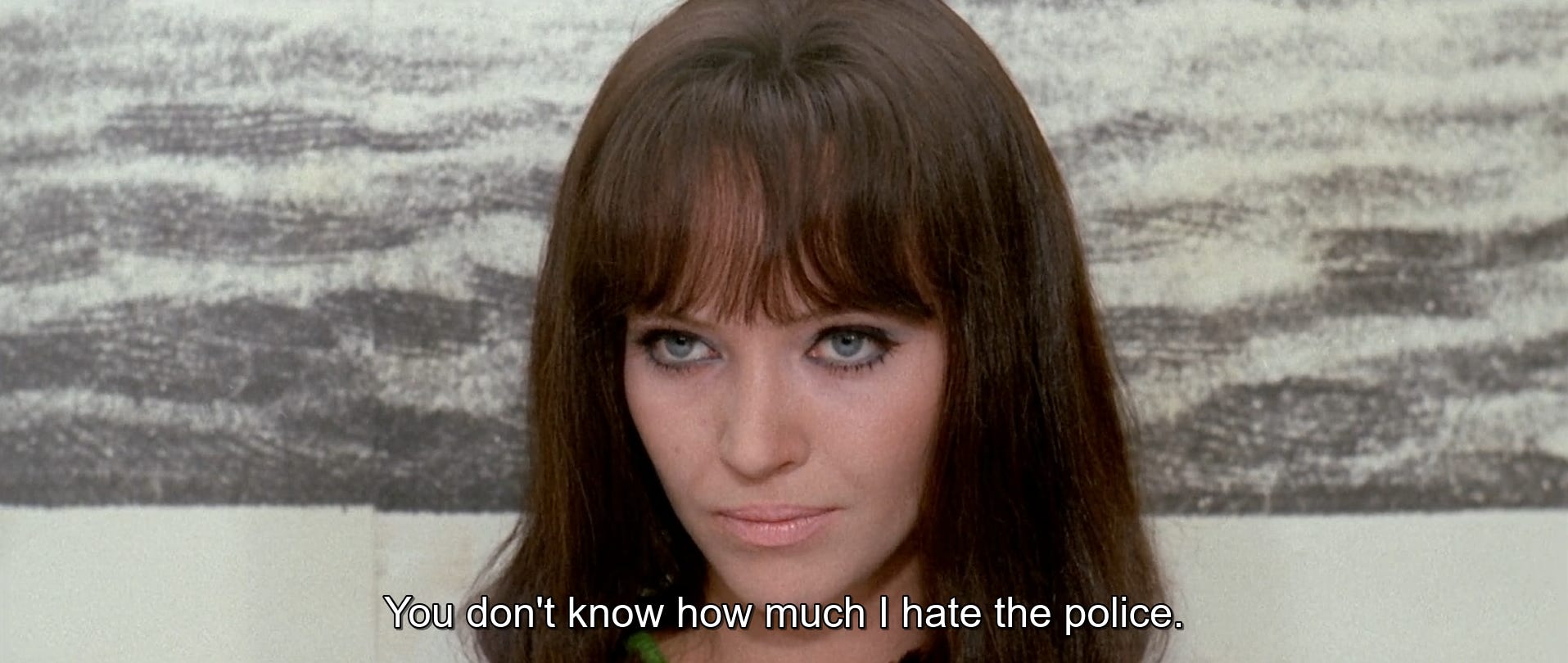
The first Parker adaptation to have ever graced the silver screen is Jean-Luc Godard’s Made in U.S.A (1966), based on The Jugger (1965) and universally disowned and disavowed by the vast majority of Richard Stark readers. Donald Westlake’s well-documented legal battle with the film’s producer and its decades-late release in North America certainly contribute to its status among enthusiasts of the novels, but the most frequent complaint appears to be about Made in U.S.A’s merits as an adaptation – that is, that there are none. It has been commonly said that the film has nearly nothing in common with the novel it’s based on, that Anna Karina’s casting as the Parker-esque character is a complete misstep, that it’s ‘incomprehensible’, ‘pointless’, and many other synonyms.
However, regardless of one’s subjective enjoyment of the whimsically charming political thriller, the real fact of the matter is that Made in U.S.A excels where many other Parker films have failed. For one thing, entire passages are lifted directly from the novel – the much-adored Point Blank (1967) doesn’t use a single line of Mr. Stark’s dialogue; major plot points remain as written, Anna Karina’s Parker is blunt and determined and steadfast in her quest for justice.
The film follows leftist journalist Paula Nelson investigating the death of her ex-boyfriend, Richard P. Suspecting it to be a political assassination, she’s soon caught in a web of intrigue involving a local cop. Made in U.S.A might not sound strictly like the novel it’s adapting at first glance but the heart of the story stays unchanged.
If any cinematic Parker has ever managed to capture his novel counterpart’s immovable object quality, it is without a doubt this oft-forgotten Paula Nelson. Godard’s dialogue occasionally borders on purple prose, there’s a dizzying circular Alice in Wonderland quality to the average conversation in the film but Paula grounds the action. Without falling prey to overt sentiment, Anna Karina sells “He had only me. I will avenge him.” as though it’s the only logical course of action. She’s nothing if not coldly logical, and true to her own code of ethics.
Made in U.S.A hits all the high points of The Jugger, and begins the same way the novel does – with the dialogue rendered almost word-for-word in the encounter between Parker and Tiftus, or Paula and Typhus.
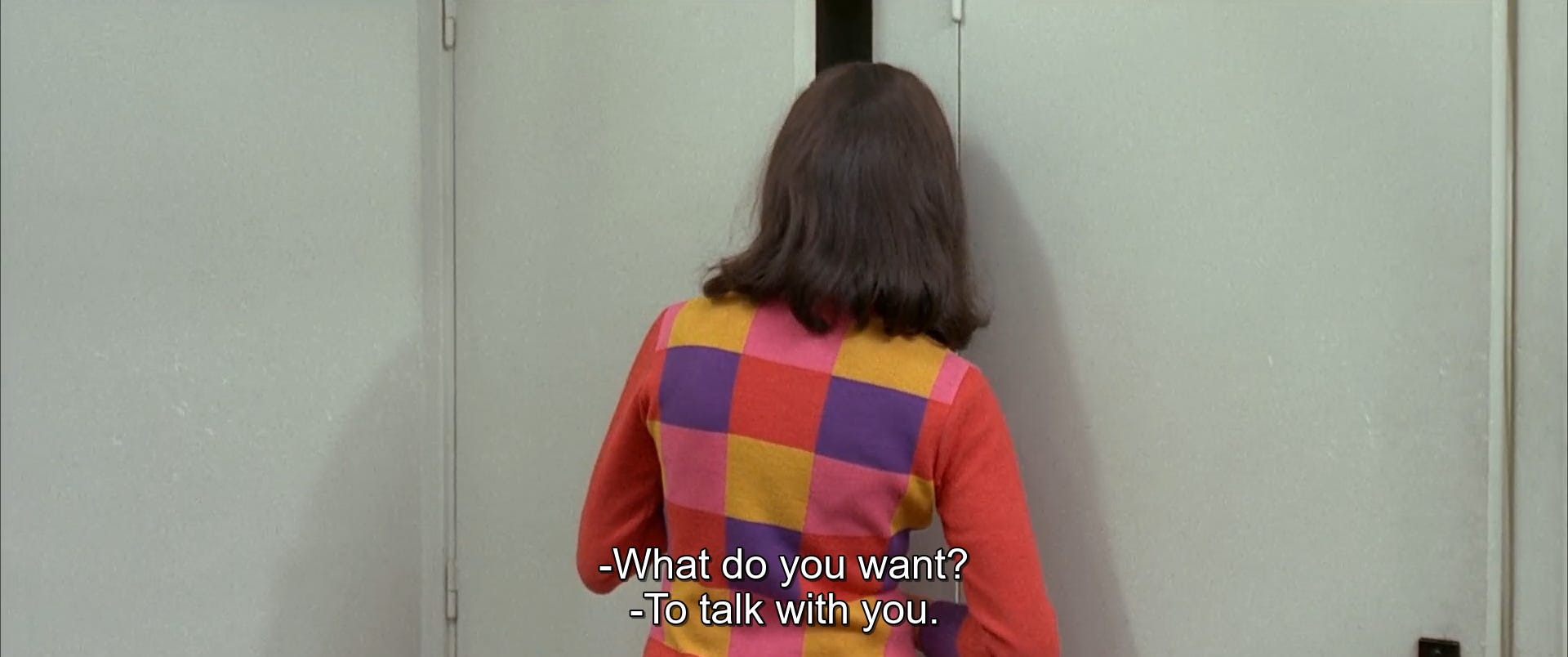
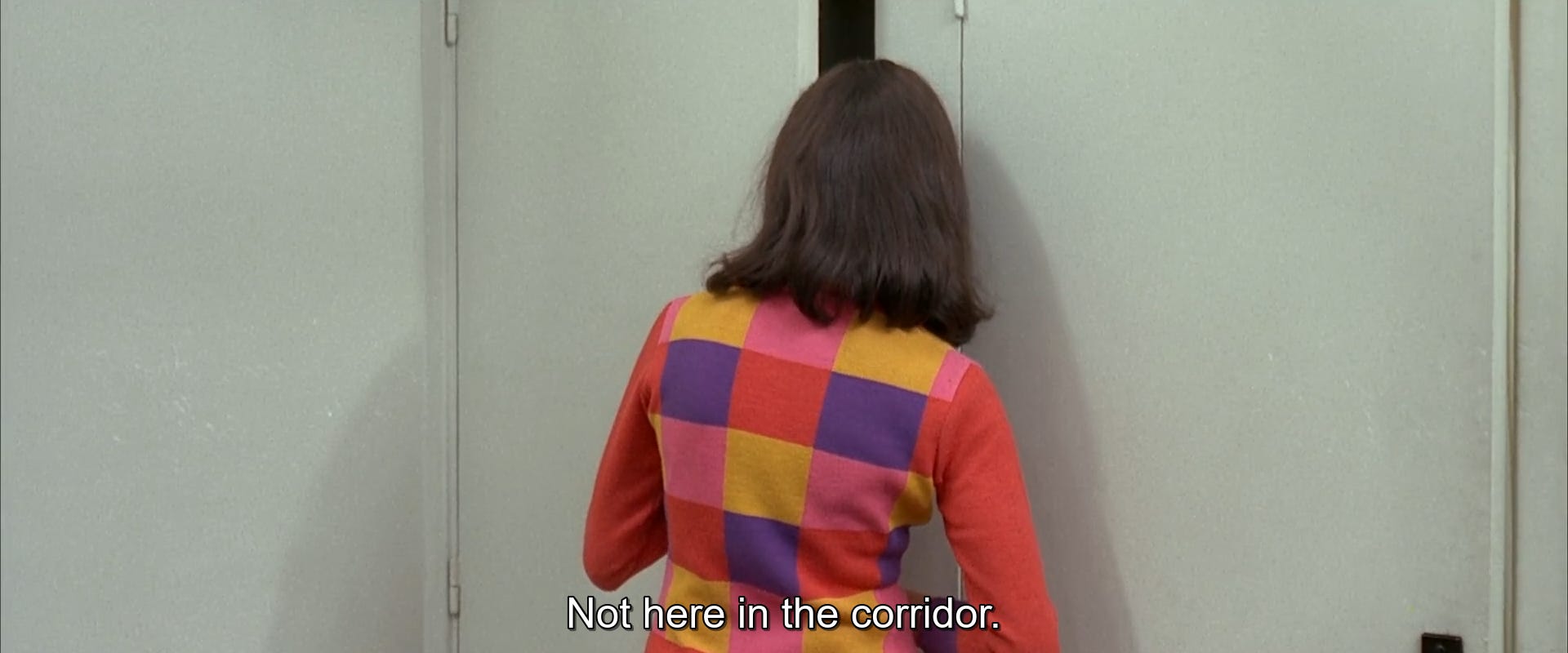
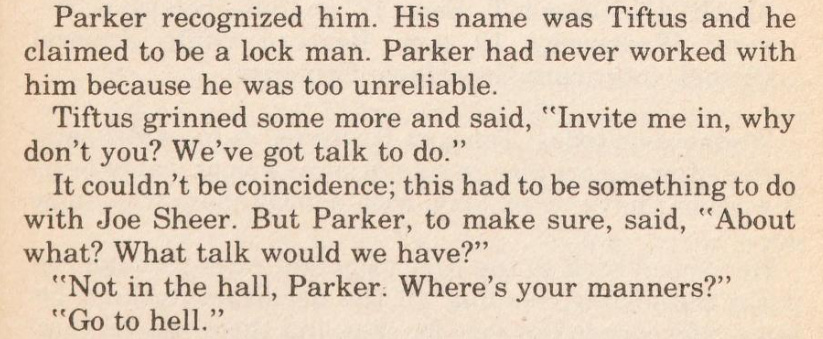
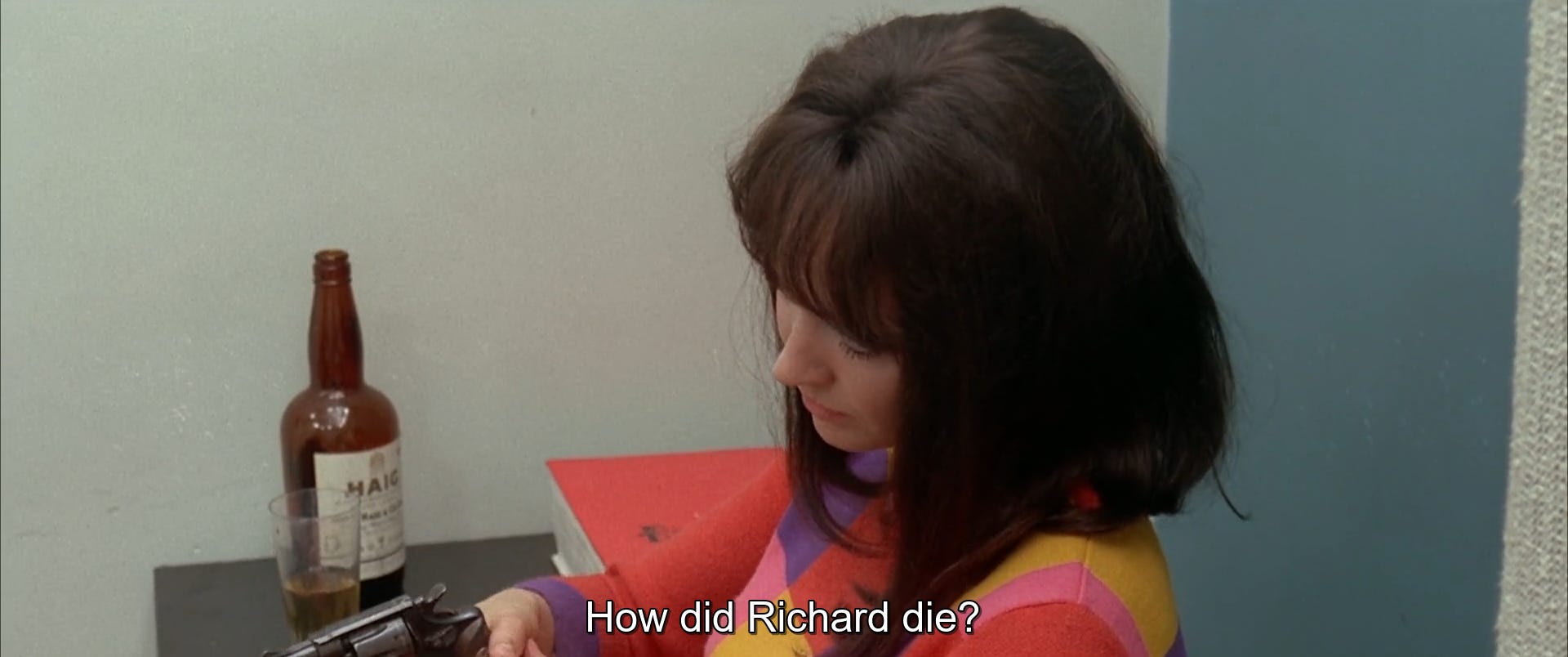
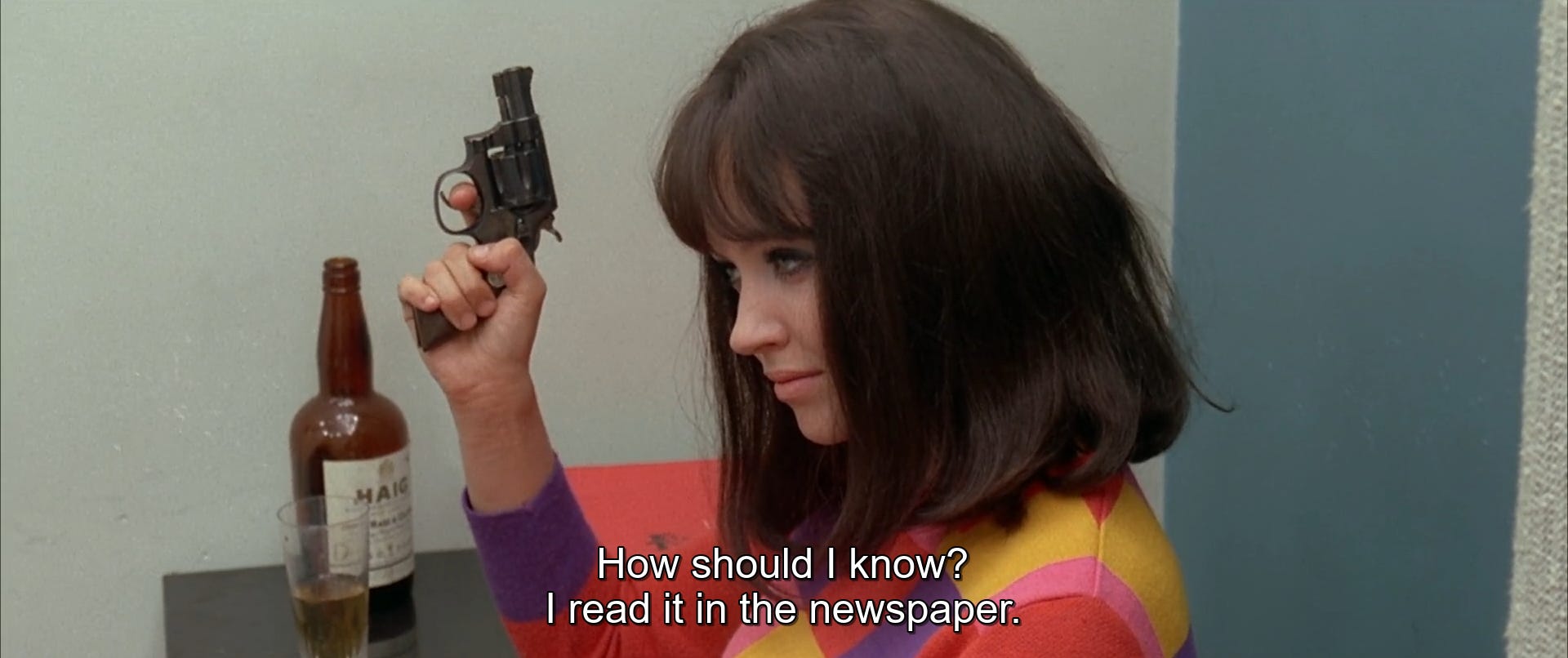
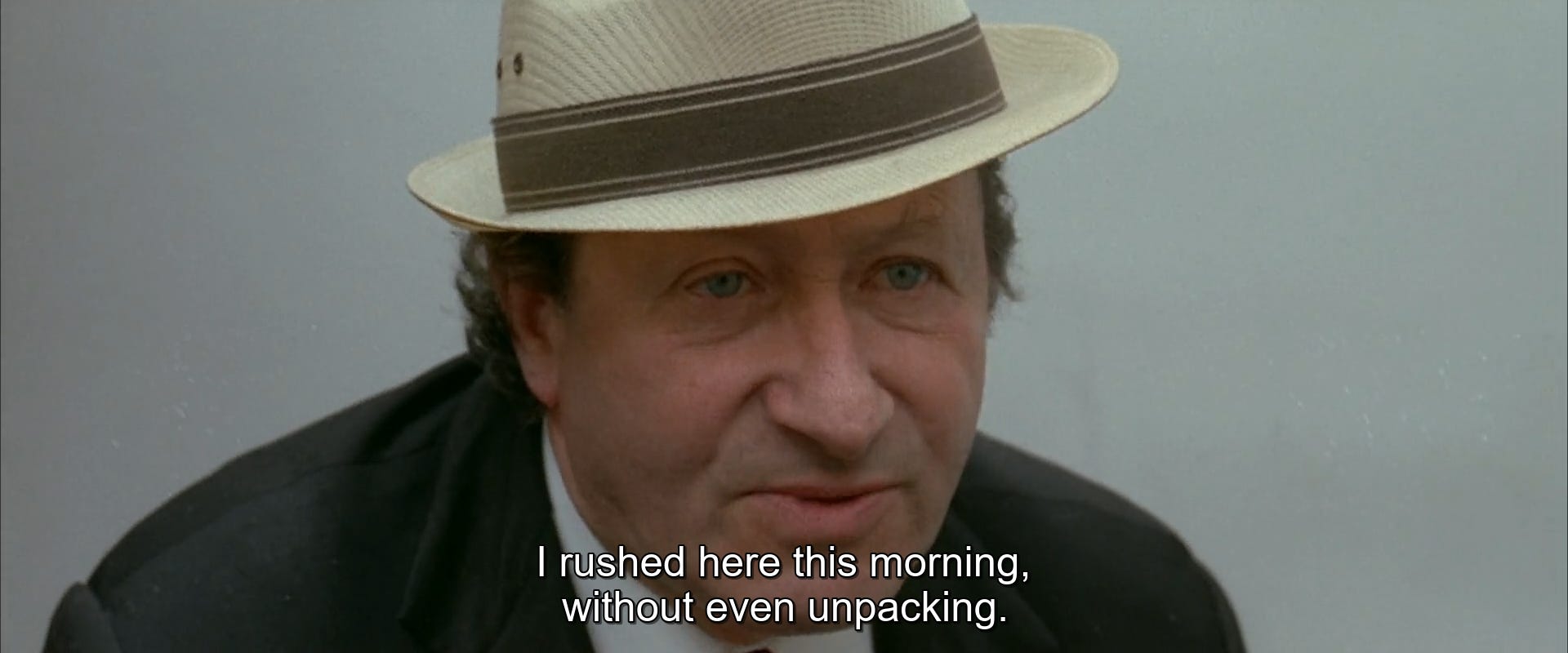
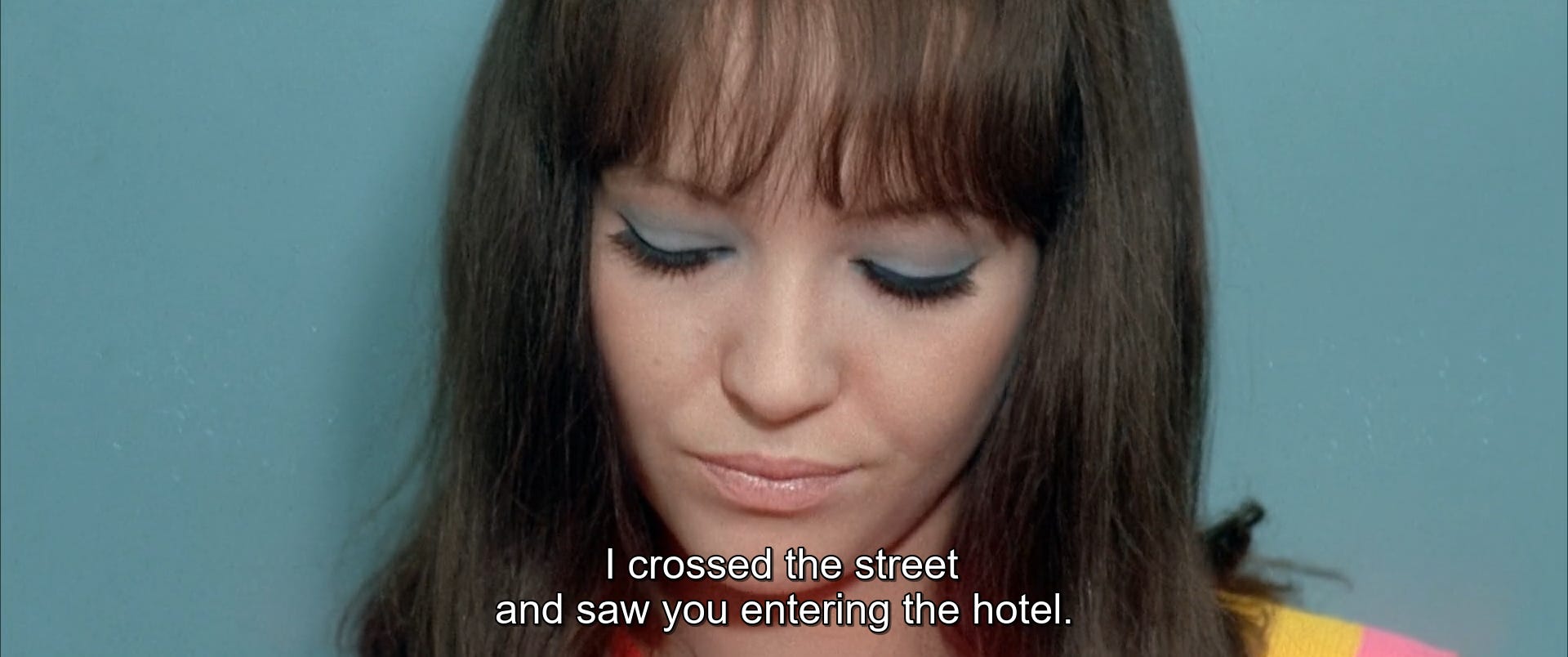
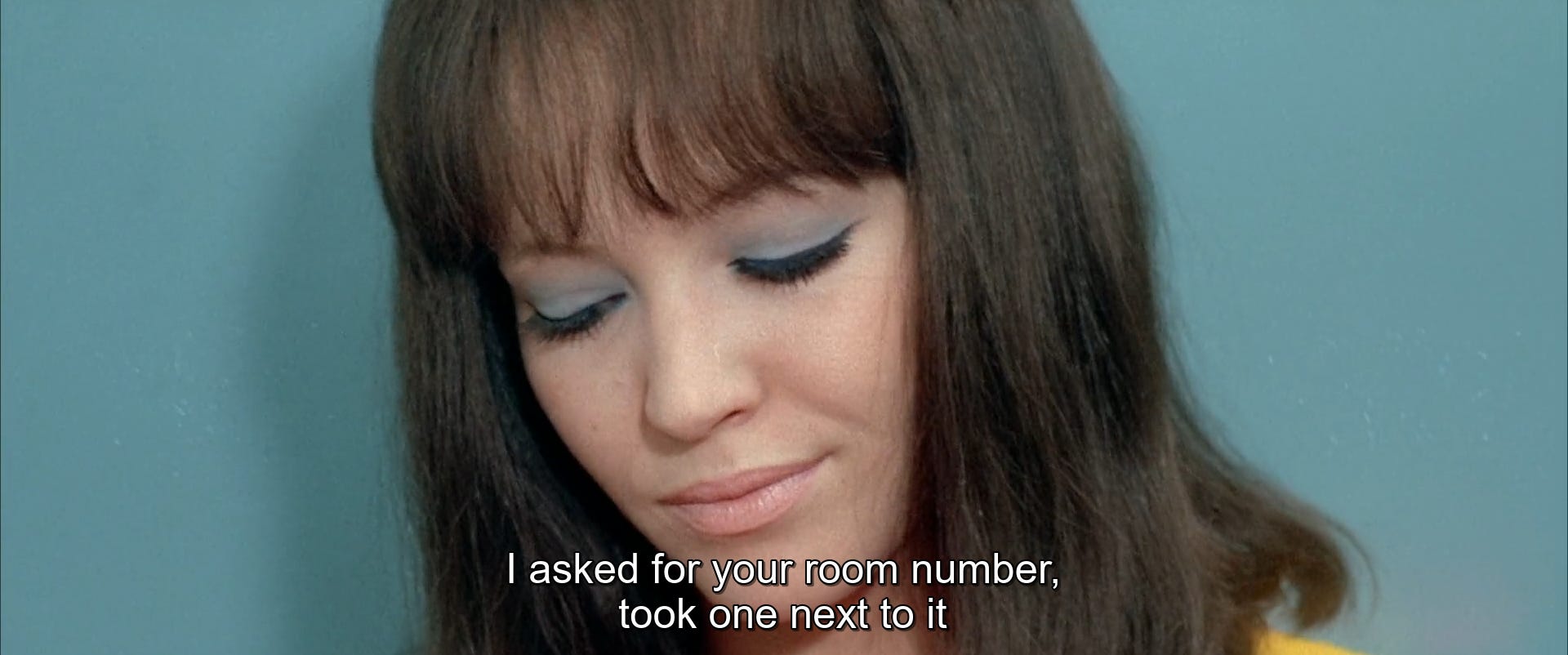

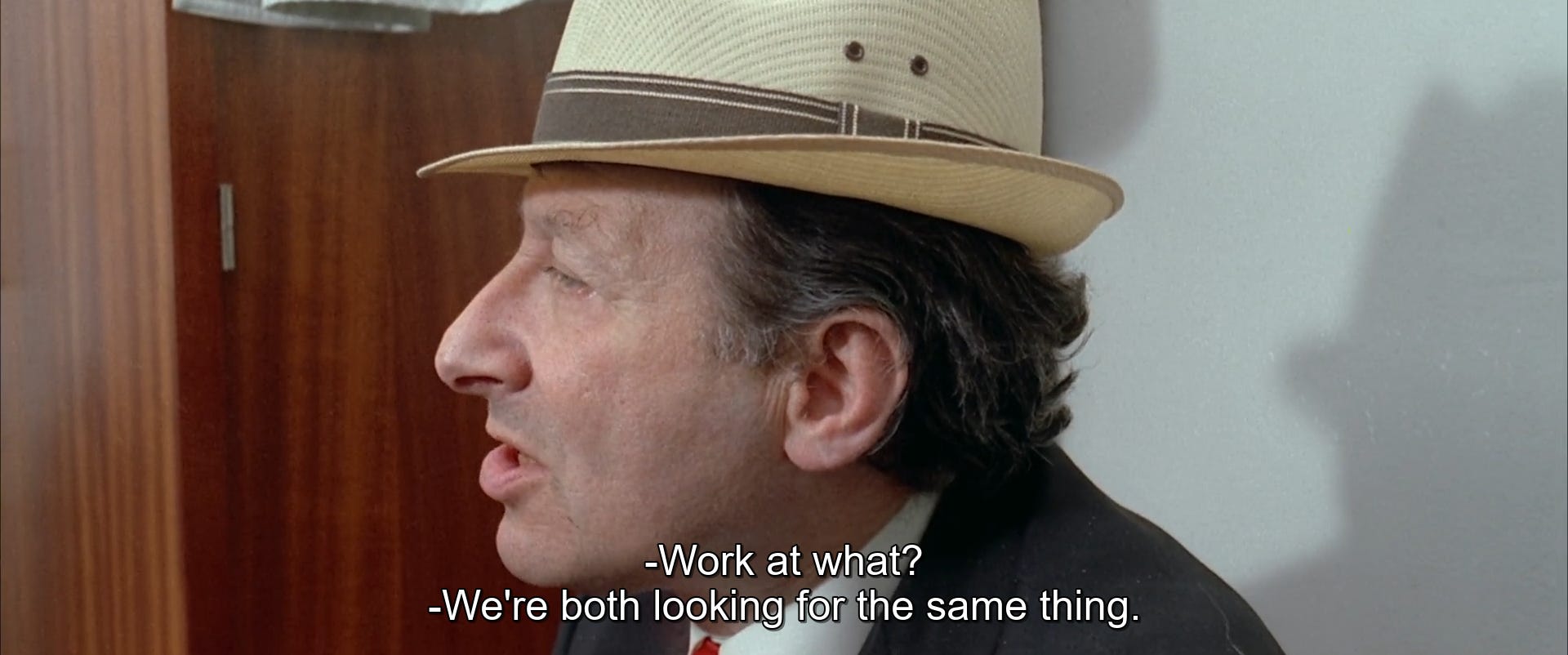
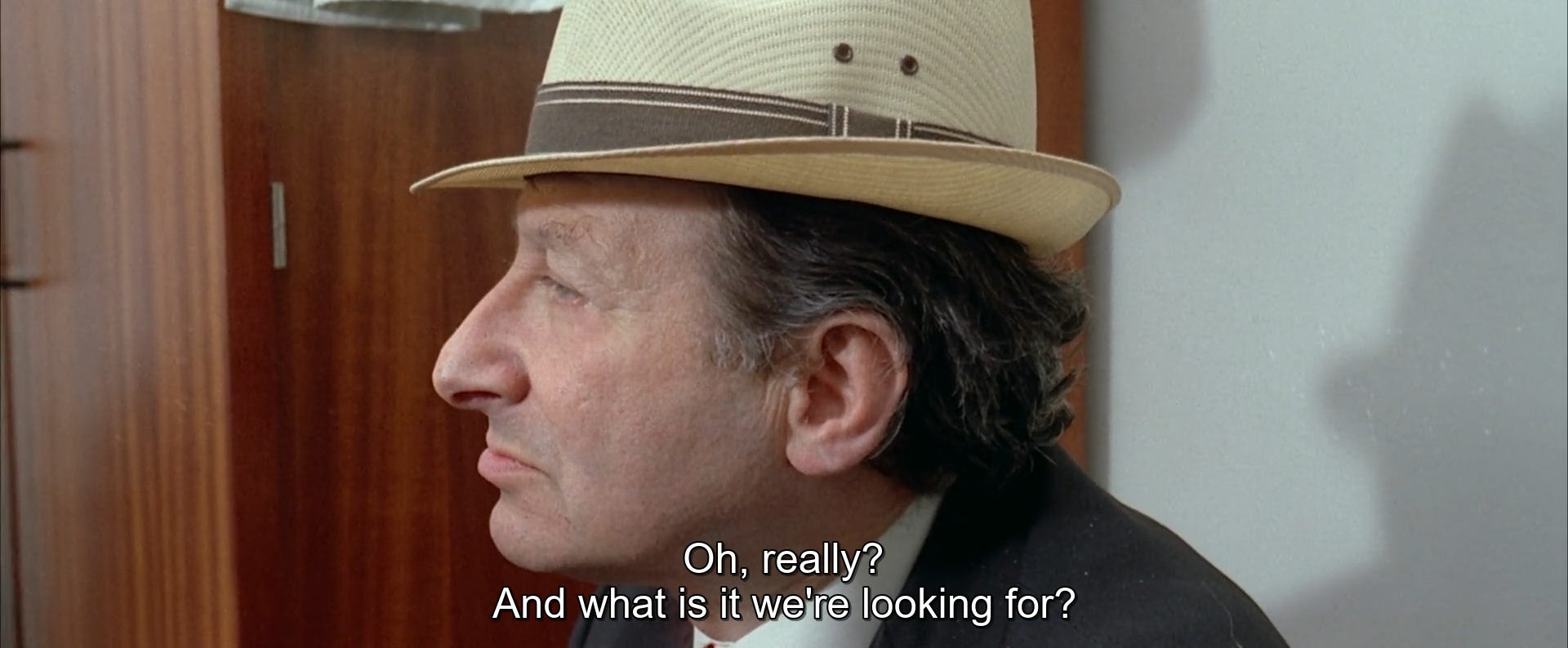
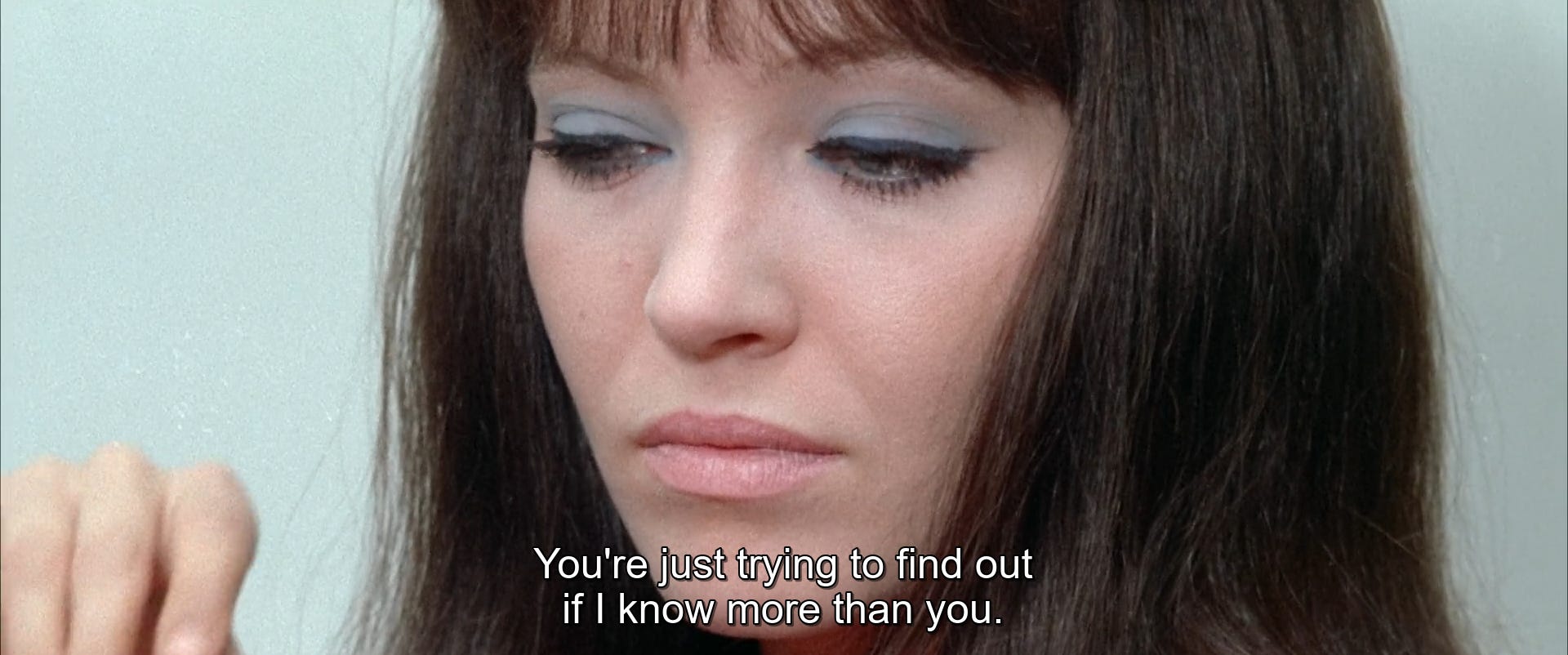
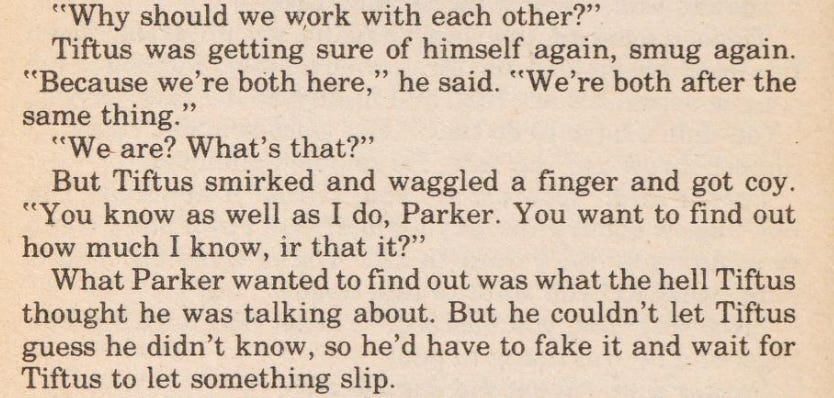
There’s even the detail of Paula being watched by Inspector Widmark.
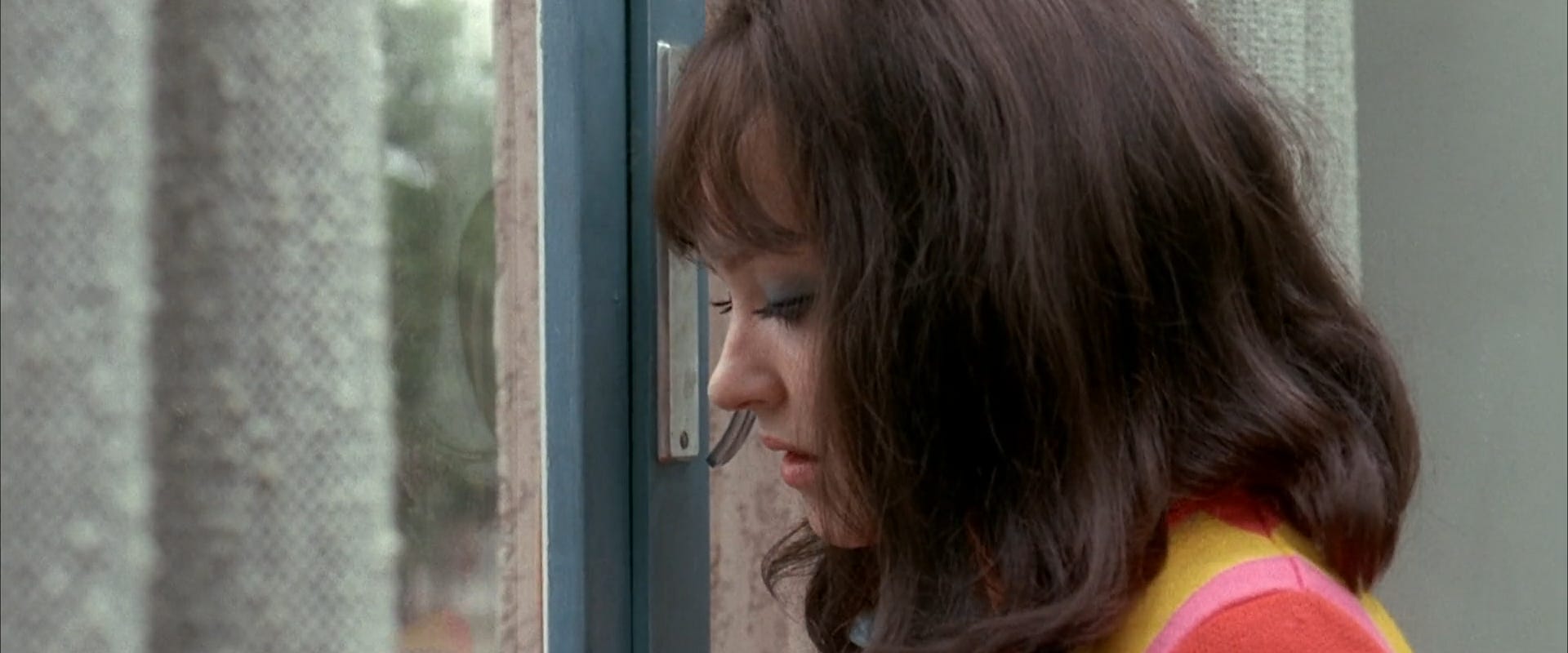
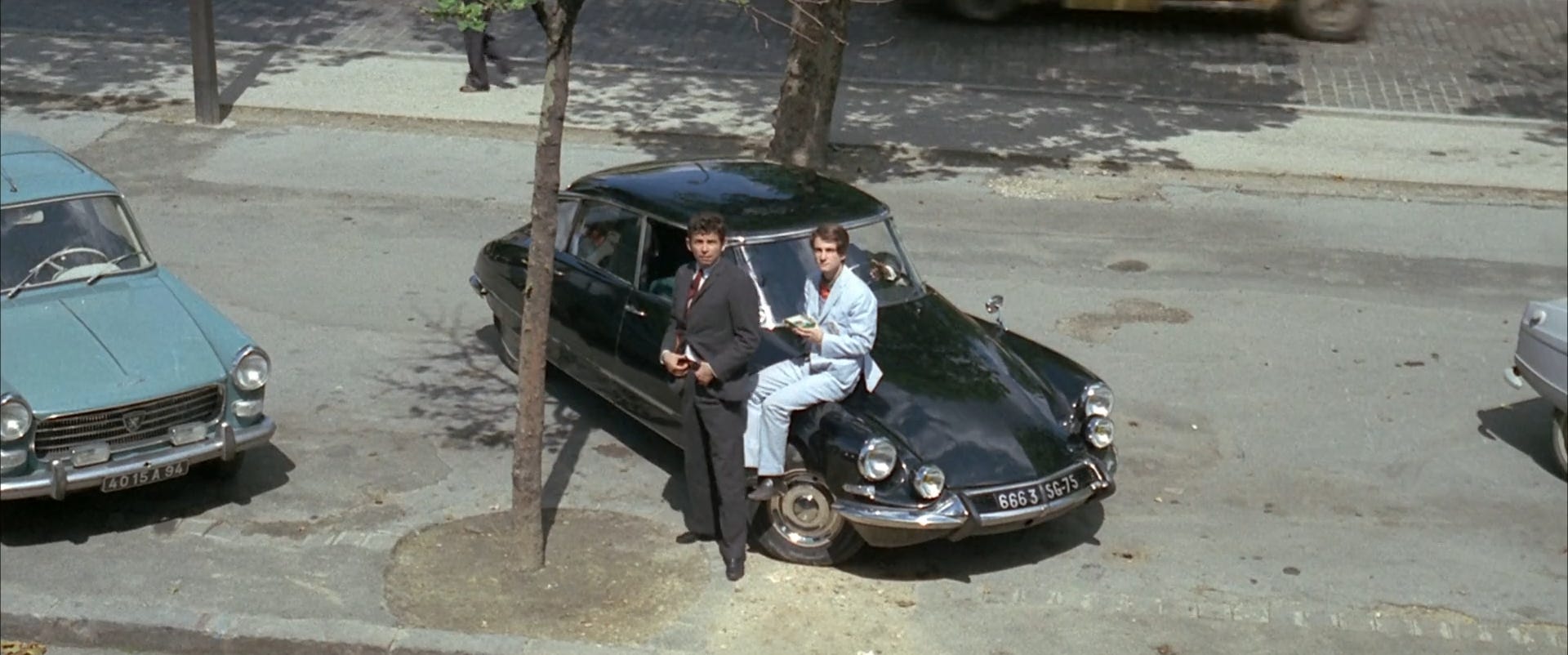

The scene ends the same way, with Paula knocking out Typhus and going through his pockets before dragging him back to his hotel room; Rhonda is replaced by David Goodis, Typhus’ nephew, but Paula still meets him coming out of the shower as is the case in Stark’s story.
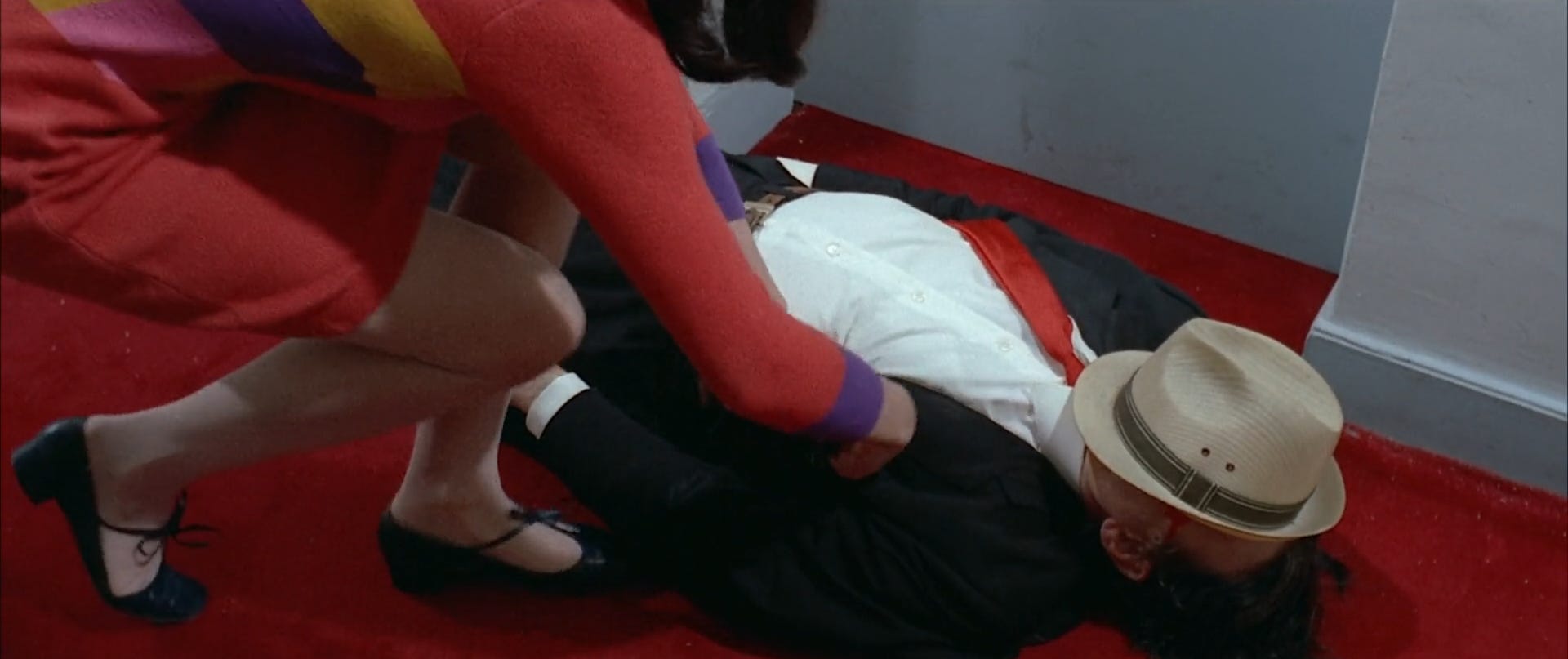
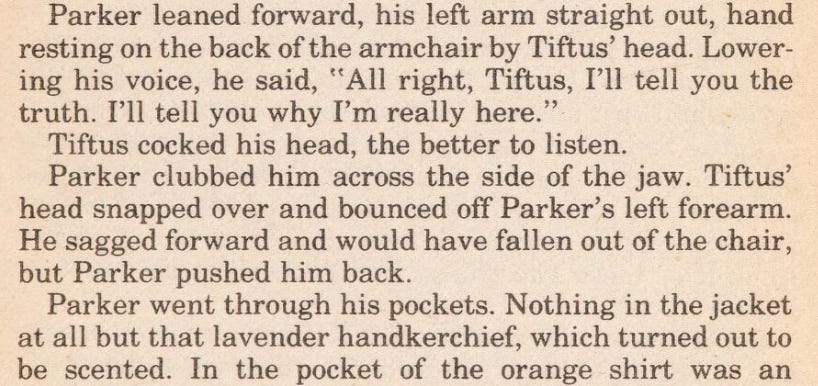
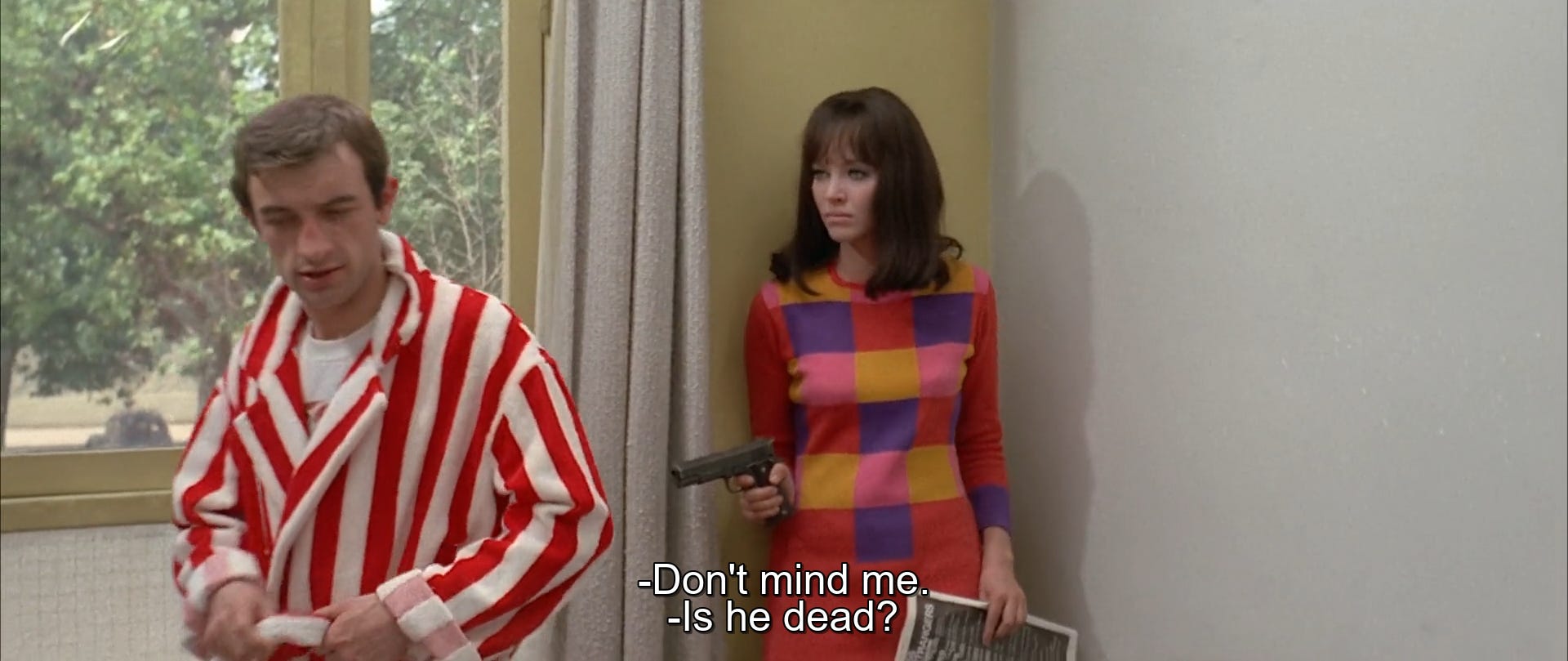
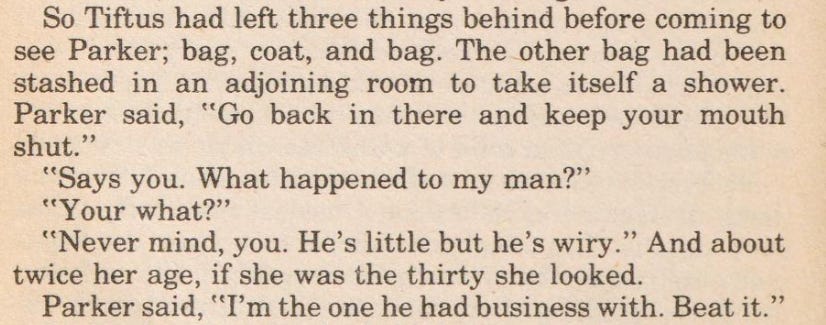
Her investigation follows a familiar course, visiting the coroner and then Richard’s house, only to get knocked out in the process.
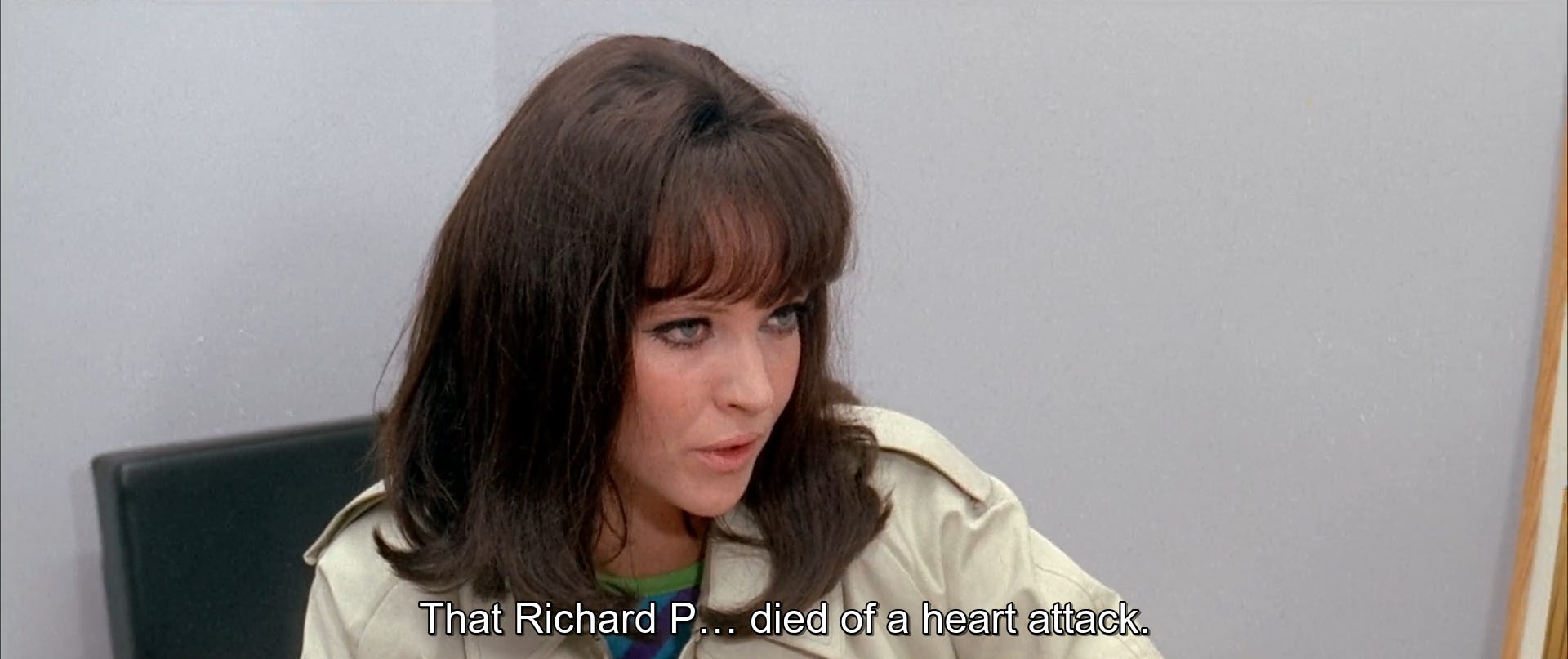
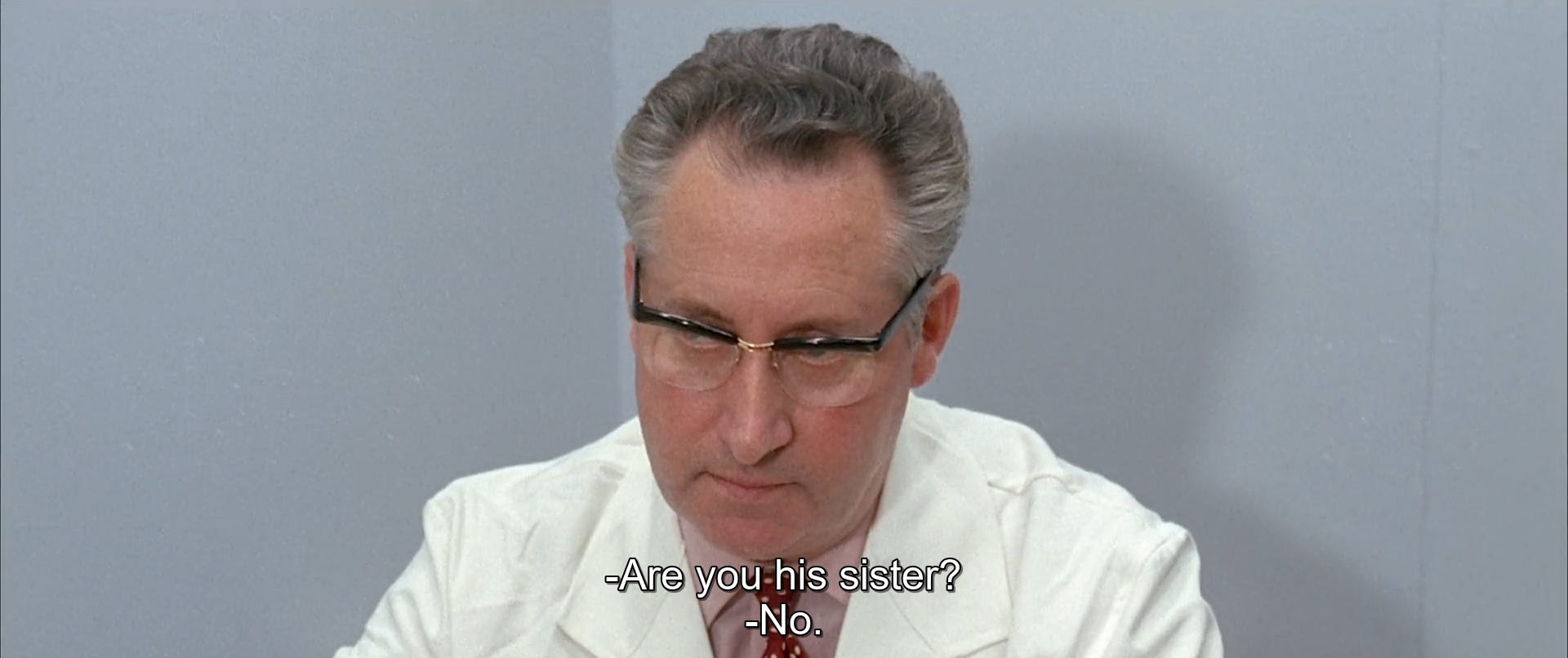

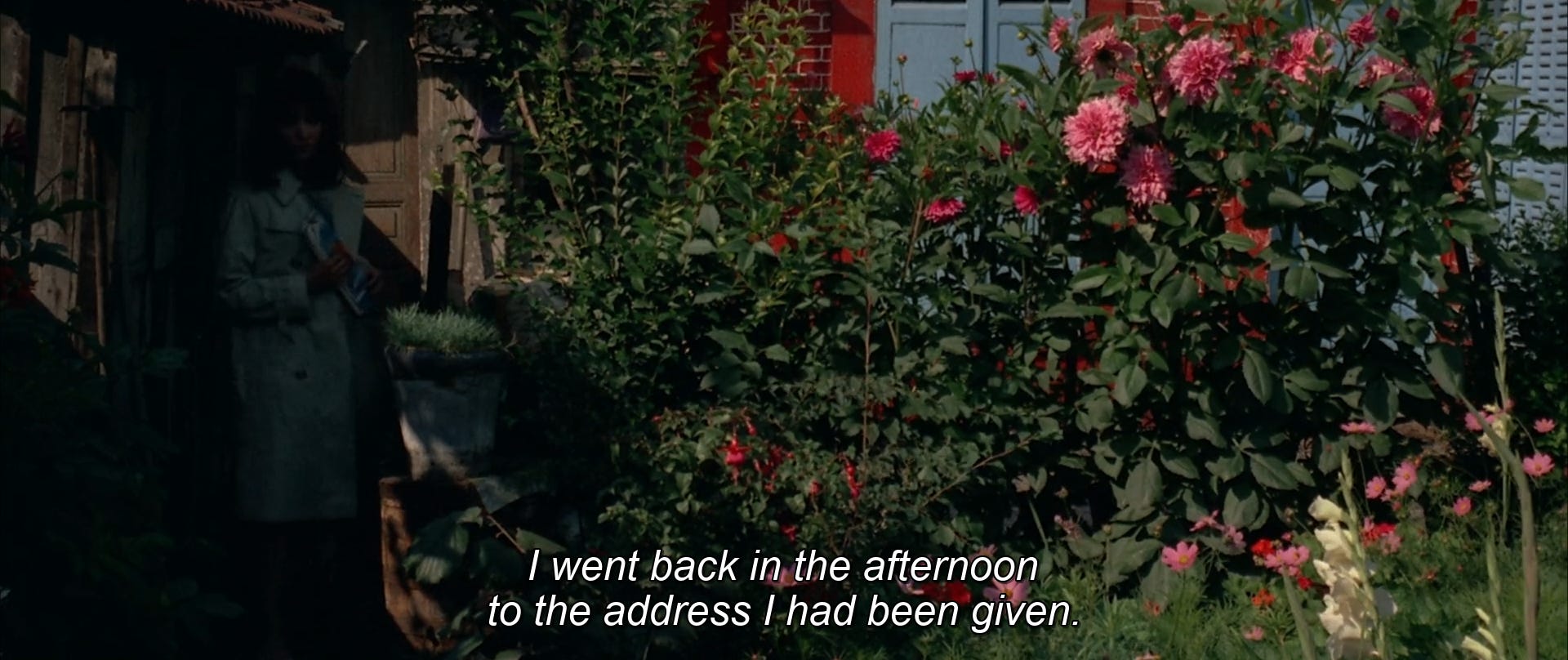
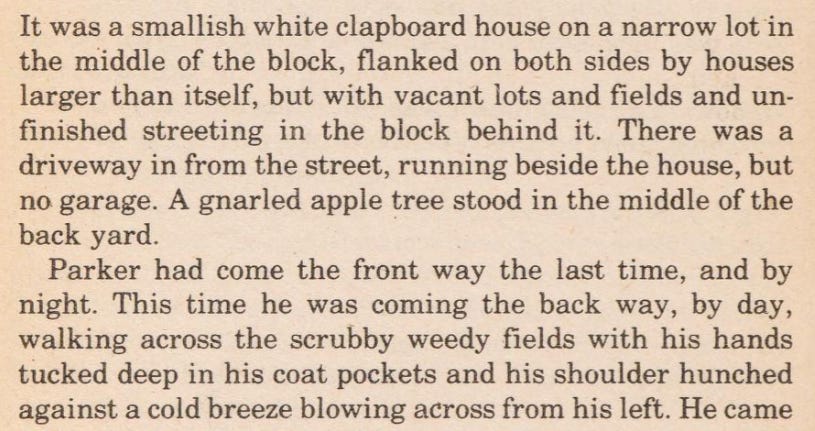
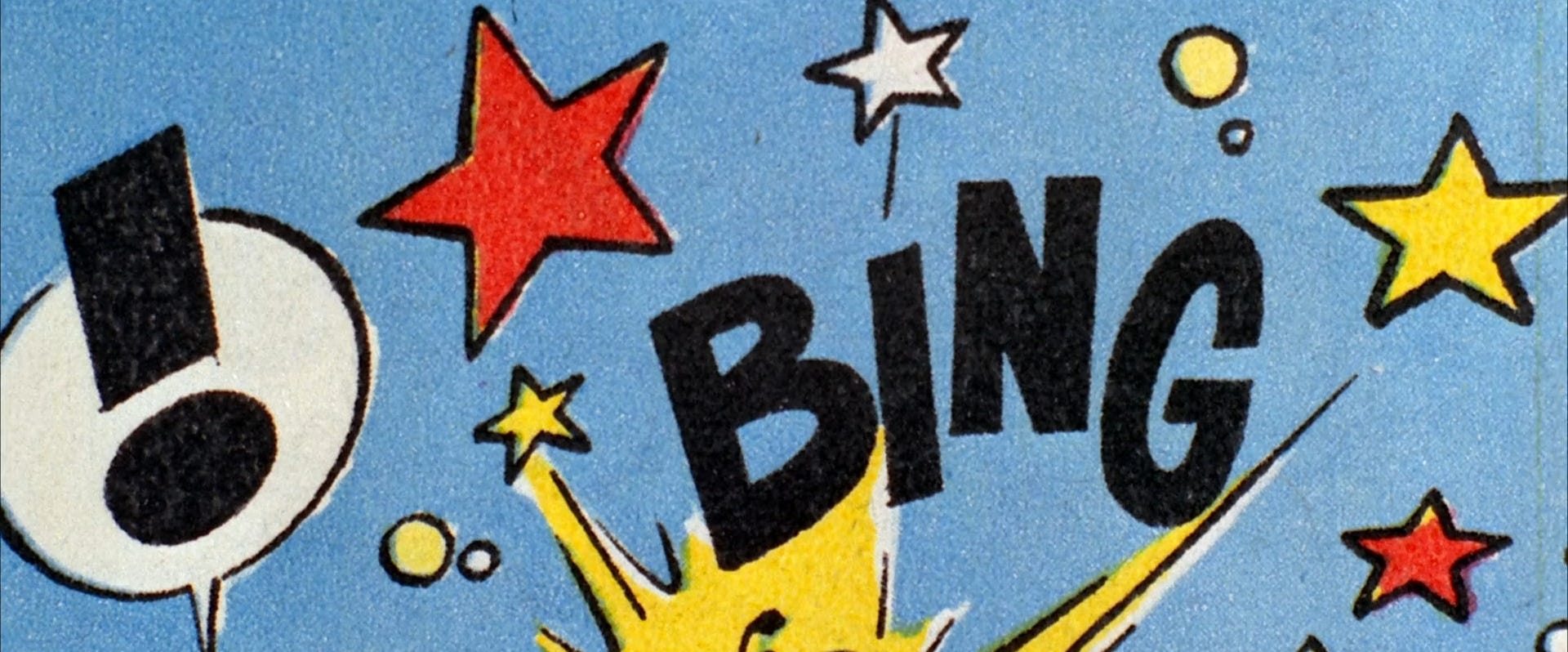
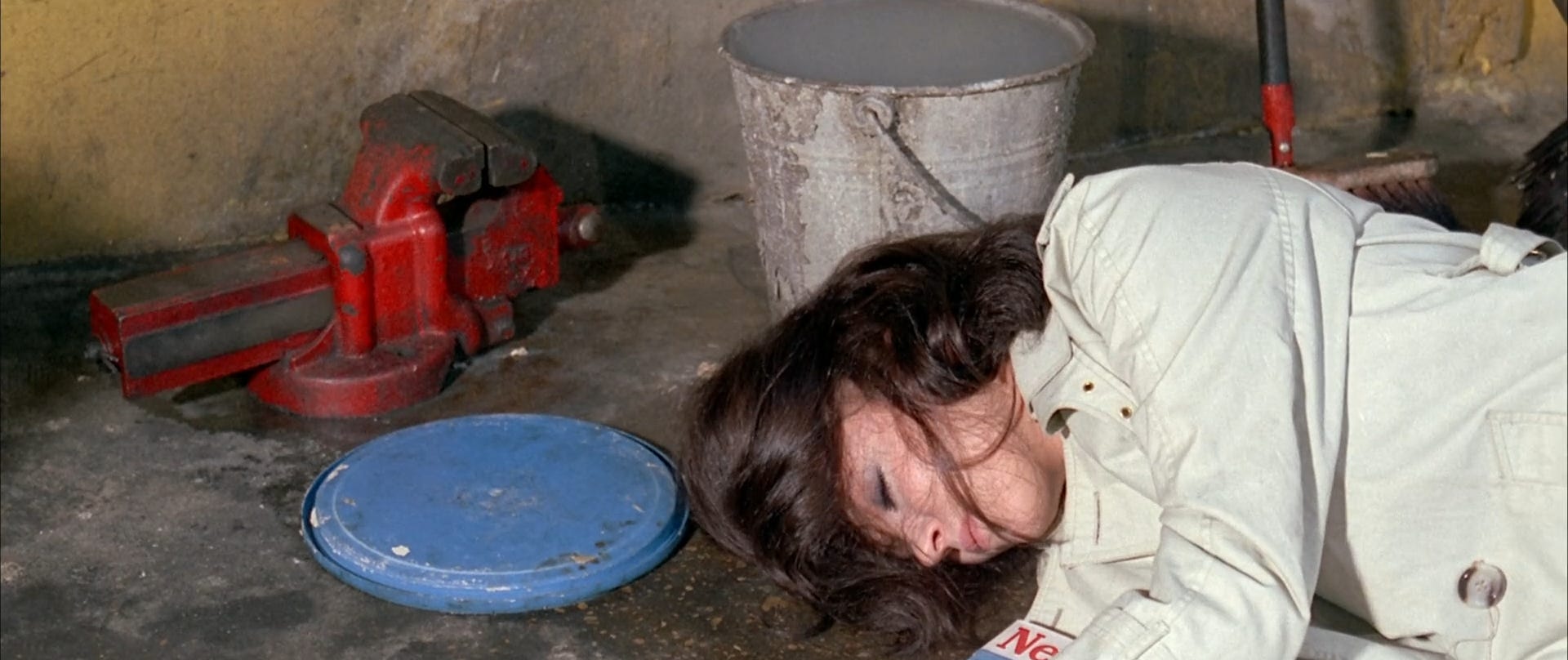
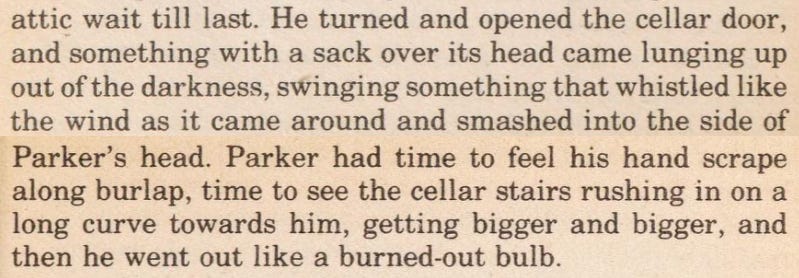
Paula’s turbulent relationship with Inspector Paul Widmark is the same as Parker’s with Captain Younger. The two of them end up as each other’s alibi once Typhus is found murdered in his hotel room, and eventually the assailant is disposed of the same way as in The Jugger.
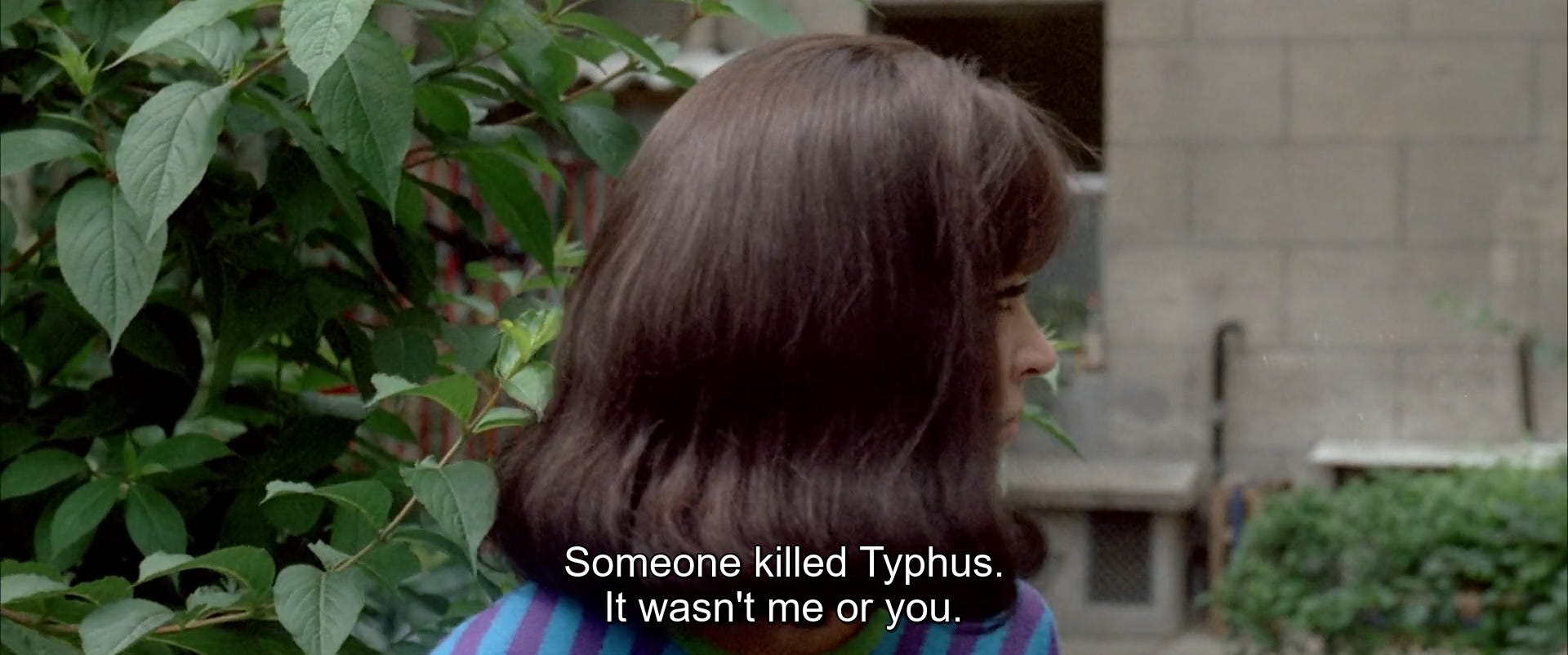
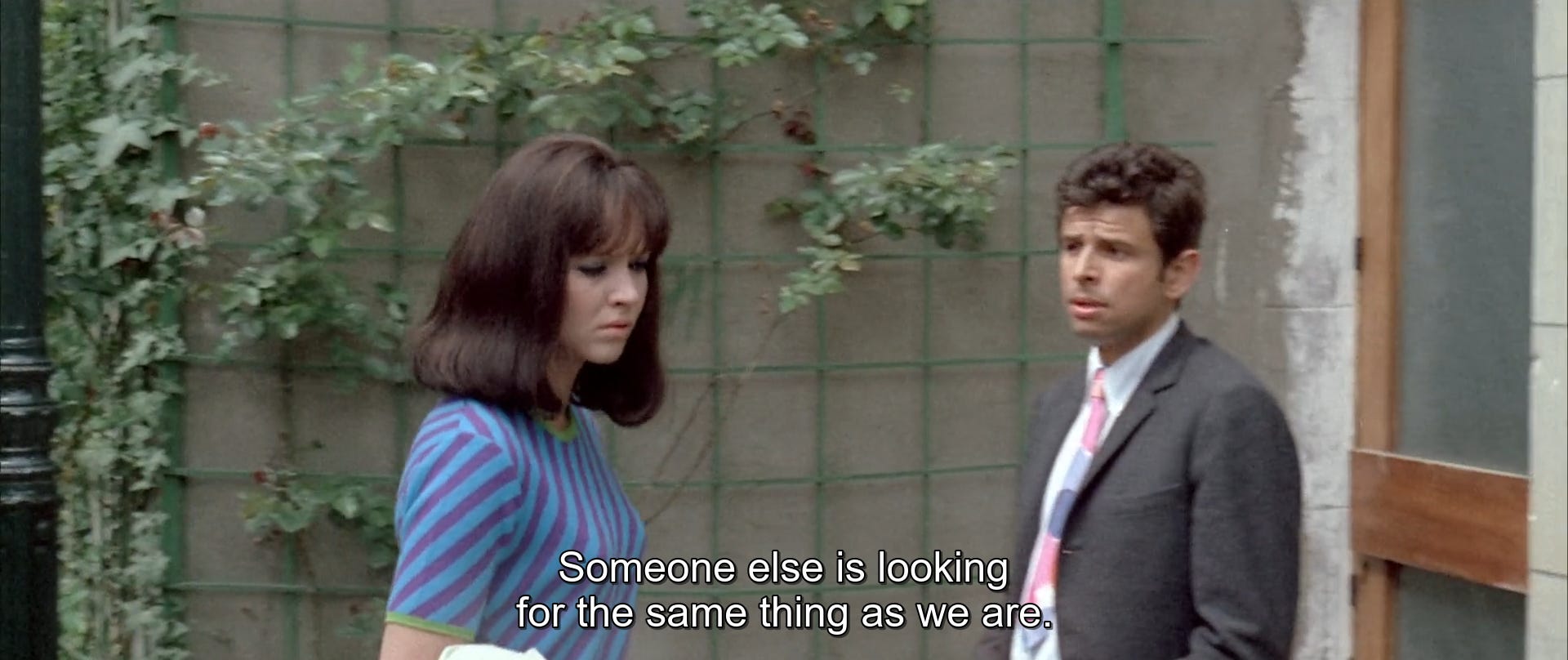
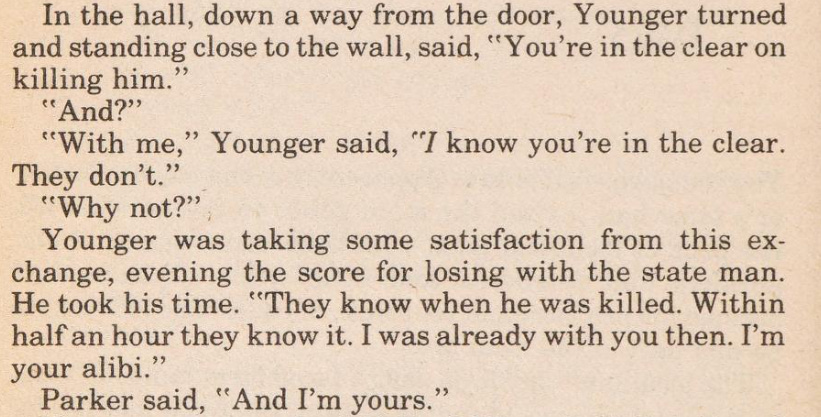
The film’s finale is once again taken word-for-word from the novel.
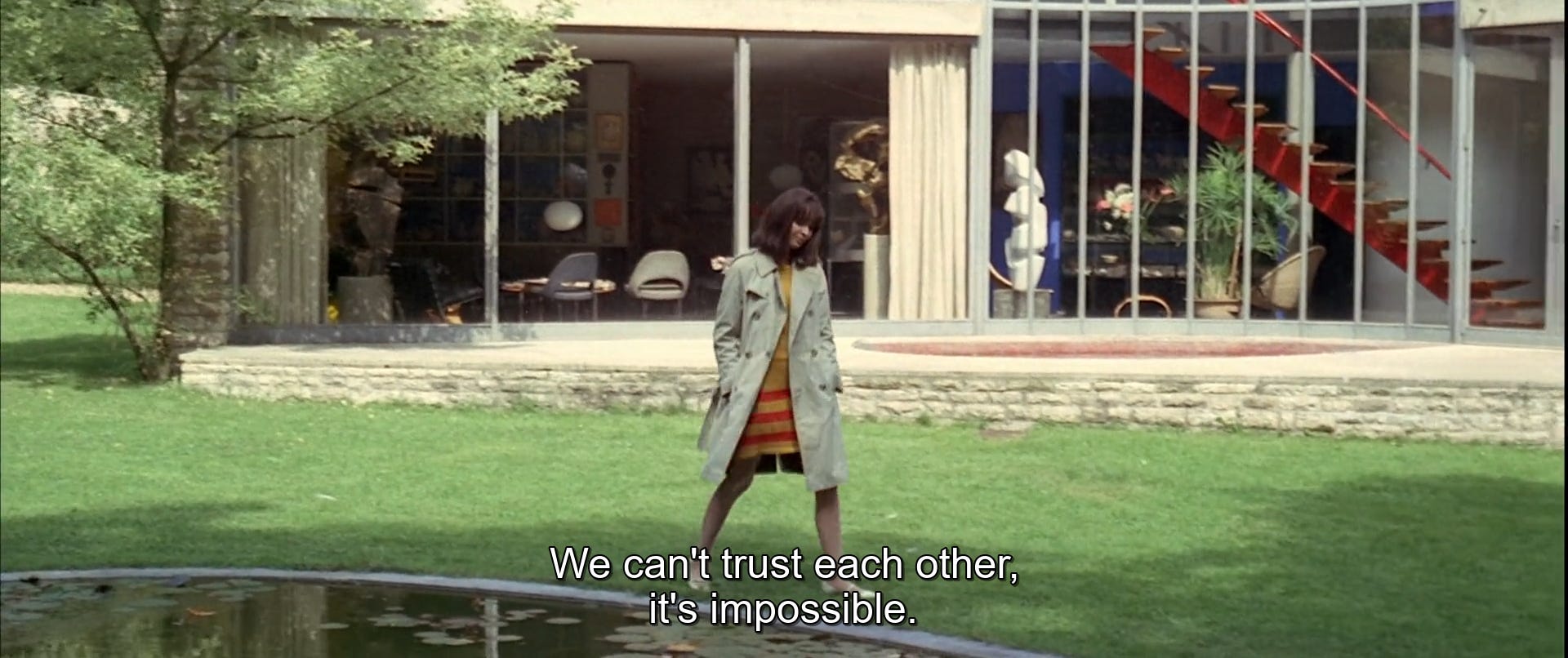
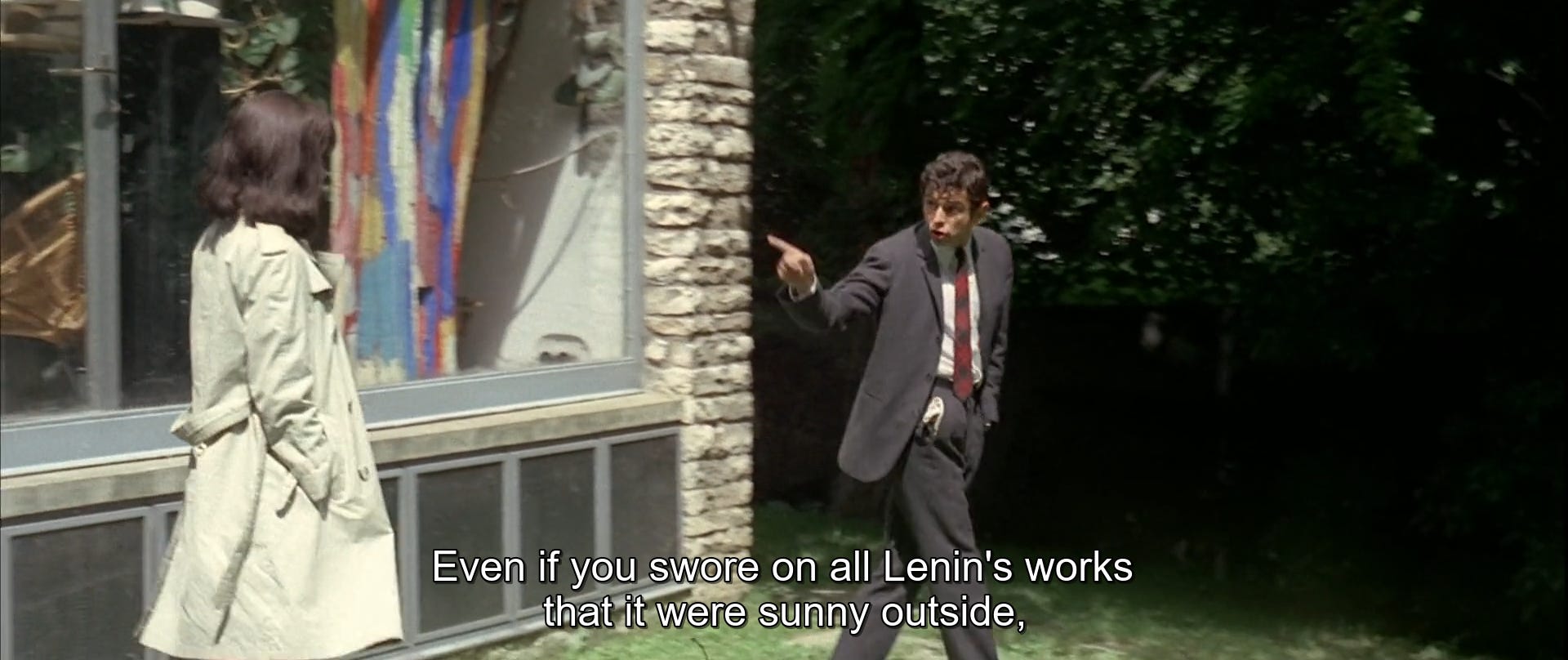
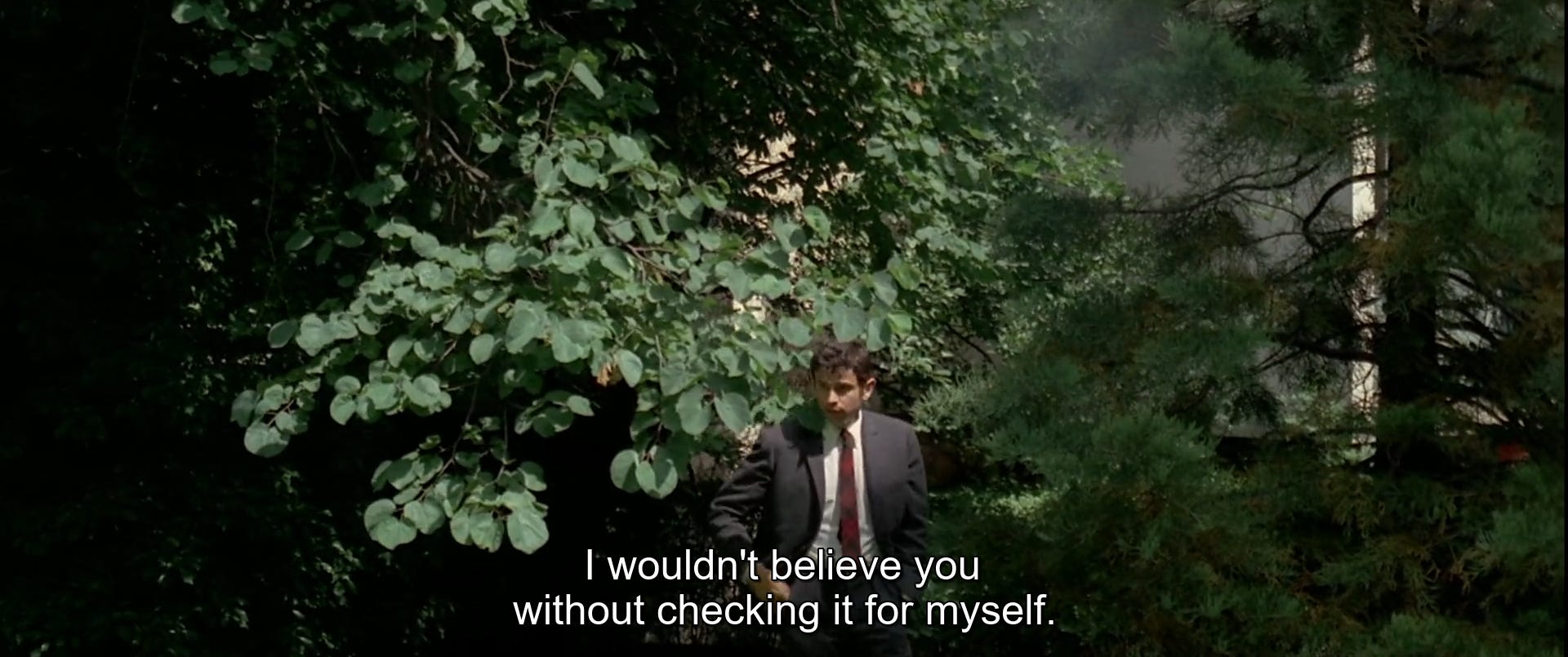

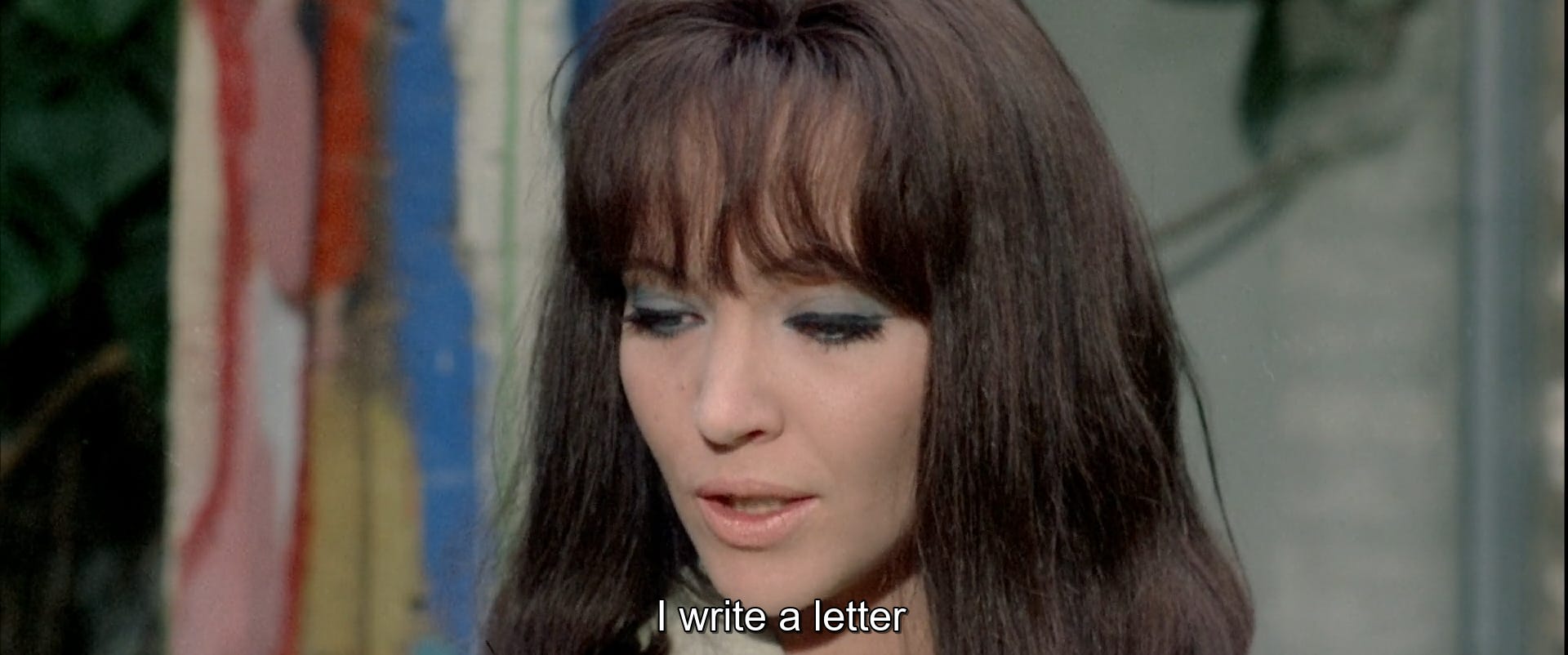
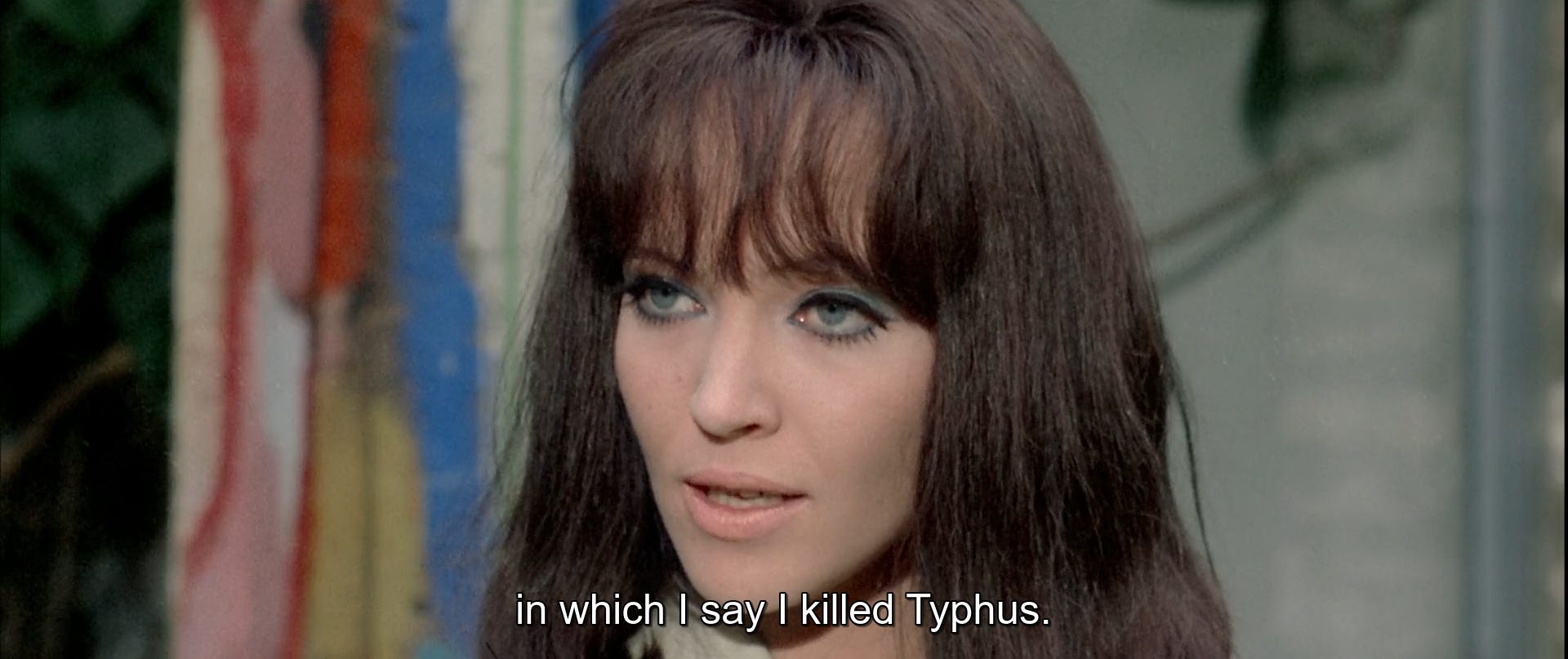
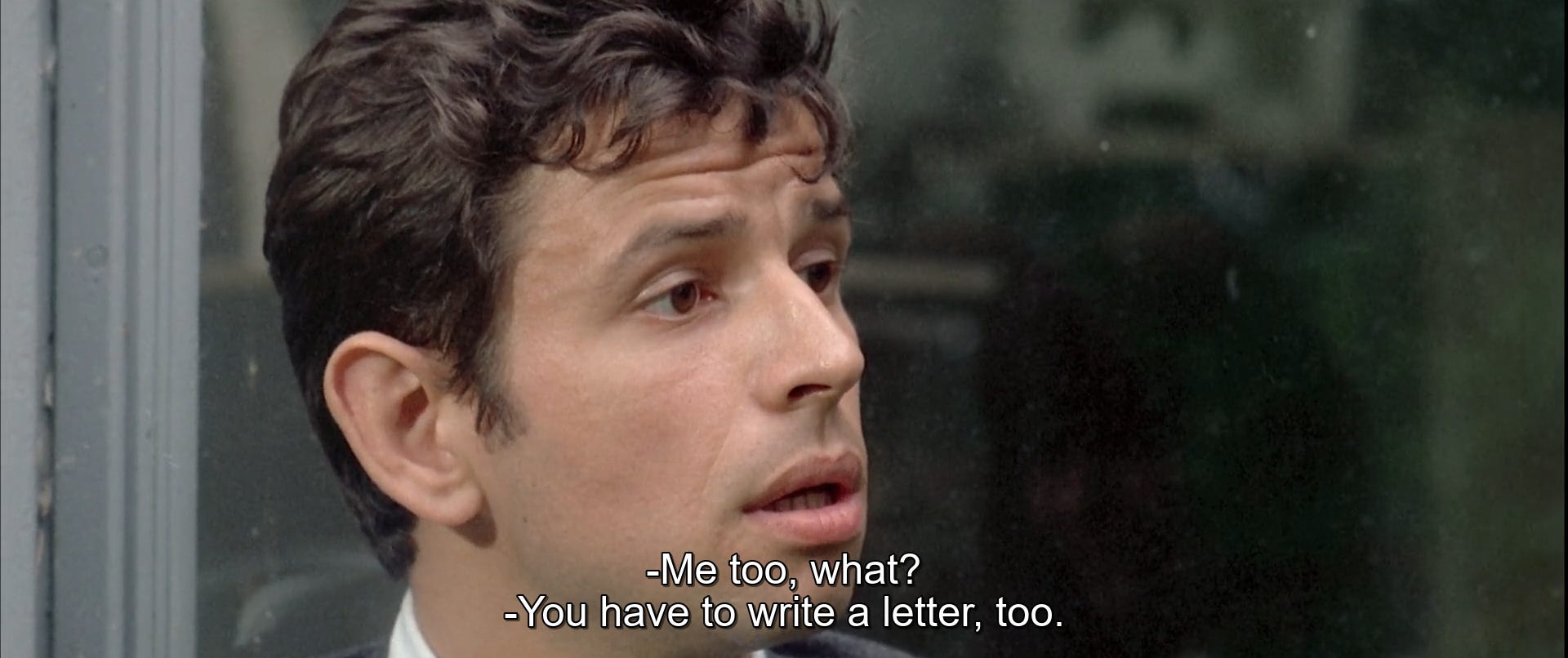
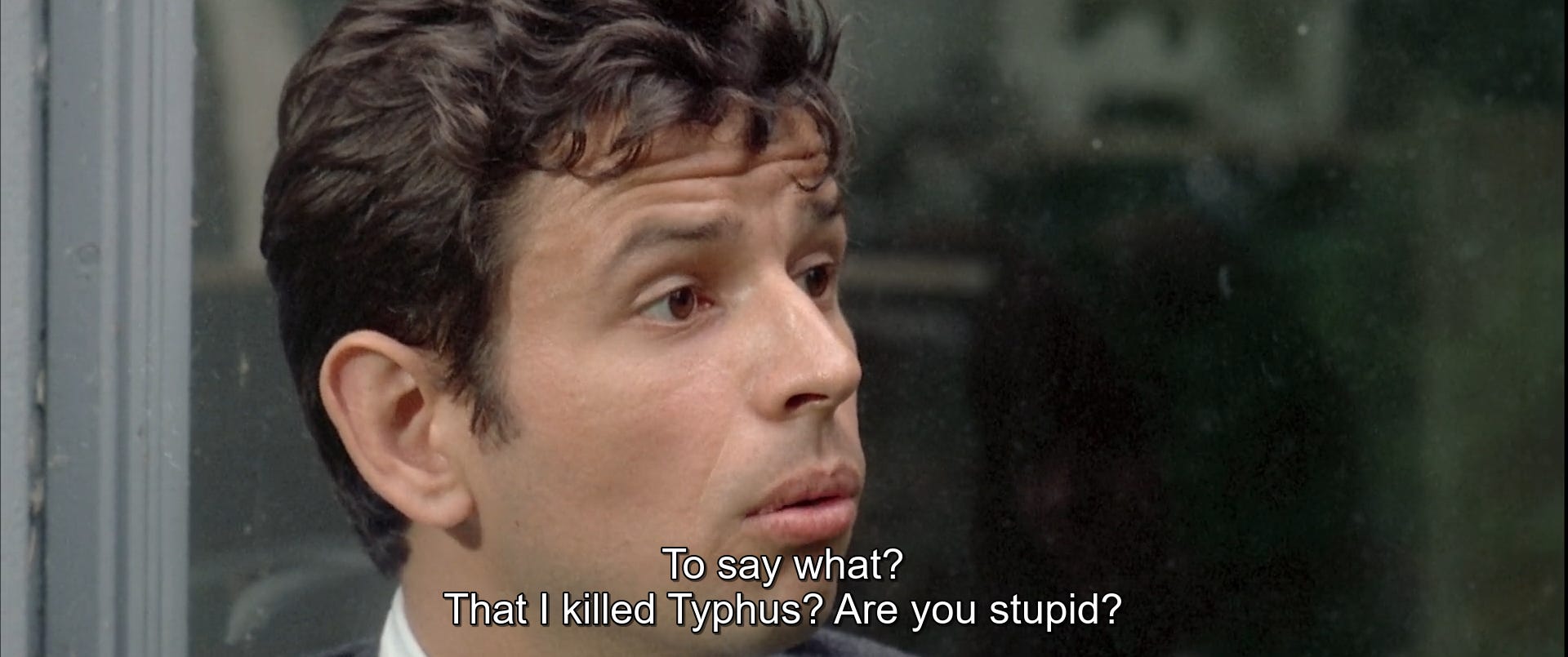
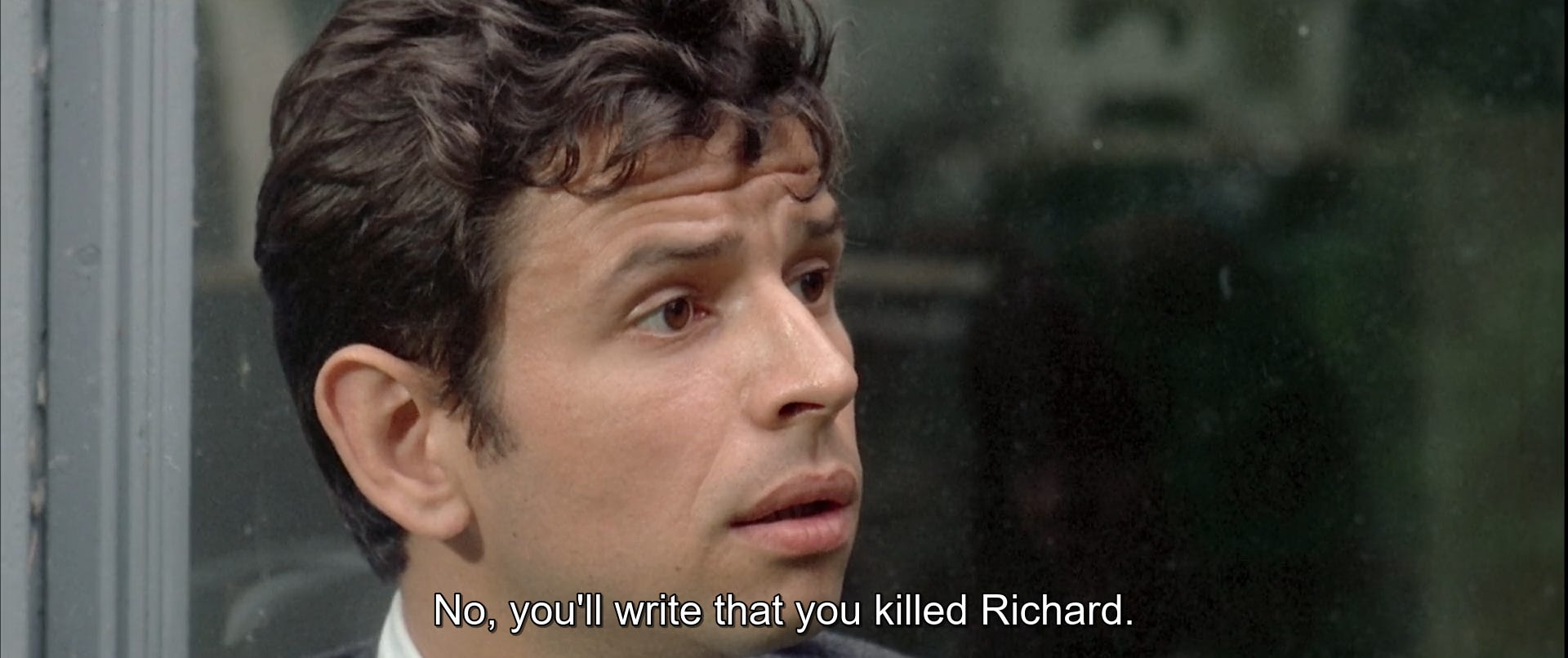
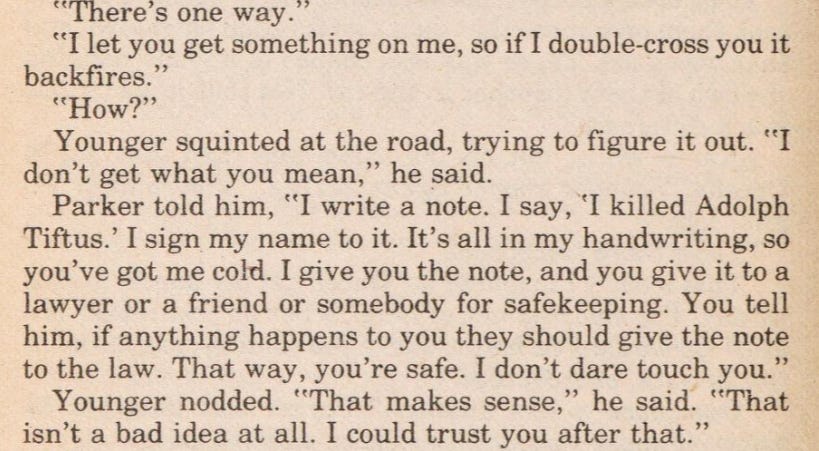
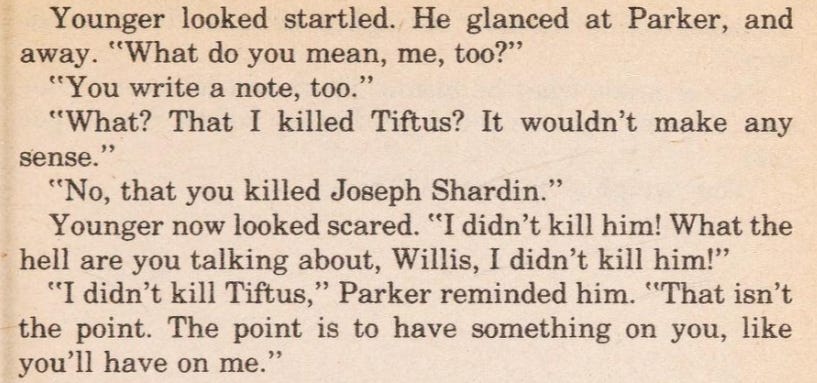
Godard adds his own embellishments, transforms a murder mystery into a sharp political thriller, but he never loses sight of the story he’s telling. If Made in U.S.A is highly stylized, if it borrows from cartoons and comic books in its half-comedic violence, if at its centre is a commentary on the still-ongoing fight against fascism – does that not entitle it to still being one of the most accurate Parker adaptations to date?
The facts speak for themselves, but so does the distinct reality that Stark’s own work is made captivating by his inimitable style and a film unable to meet him stylistically halfway would be a wasted effort; not to mention that Parker himself is prone to bouts of whimsy, remarking that “Younger puffed out a blue Disney cloud of cigar smoke” in this very book.
Above all, The Jugger is not devoid of politics; it is the story of a police captain using his power and influence to methodically torture and ultimately kill a private citizen and nearly get away with it. Parker’s refusal to engage in crime targeting individuals, his hits on corporations and institutions have always made for a left-leaning text but nowhere else has that been more emphasized than in Jugger; and Made in U.S.A’s politics – Paula Nelson’s repeated “You don’t know how much I hate the police”, her communist beliefs, her hopes of fighting the rising tide of fascism – are by no means out of place in an adaptation of Richard Stark’s novel.